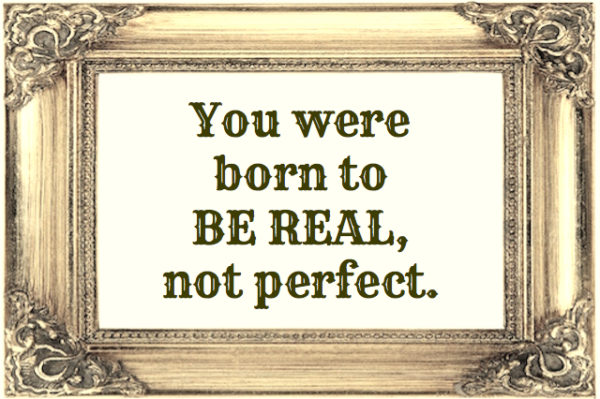All of us come into the world with a high self-esteem, but slowly over our lives it gets chipped away by various people in our lives: friends, family and even strangers. Our culture claws away at if even more. You know those Calvin Klein commercial, right guys? And what about those runway models, girls? Here, Erik discusses the whys, hows and more. First, the poem as a refresher:
Uncertainty is the root of fear
Distrust is the root of uncertainty
Scarcity is the root of distrust
Hostility is the root of scarcity
Sorrow is the root of hostility
Attachment is the root of sorrow
Fear is the root of attachment
Chaos is the root of all
Harmony is the equal opposite of chaos
Me: A low self-esteem is such an important topic to discuss, Erik. What does it have to do with distrust?
Erik: It’s about not trusting in yourself or in other people. When I look at the human experience, for me, self-esteem is related to your sense of self-worth. It’s about how someone values themselves. Now, in America, the fucked up thing is that this value is about dollar signs, status or power, and that definition really doesn’t fit the concept of self-worth. It’s just the creation of a façade or a “fake” sense of self-worth. So, you’re at a loss right from the beginning. You’re already drowning, and you’re not even in the fucking pool!
I chuckle.
Erik: So if we’re talking about what the value of oneself is, it’s about your capacity for personal honesty and acceptance because, once you can accept yourself for your talents, your greatness, your difficulties, then you’re able to see the worth of yourself, what you bring to the table—your motivation, your inspiration, your agony, your suffering. All of it is valuable. What makes it not valuable is when you don’t accept it.
Me: How powerful! It seems like so many things stem from a poor self-esteem. For example, a sense of disempowerment, a need to be right, a sense of isolation, shame, jealousy, fear, depression, anxiety, narcissism, problems expressing feelings, lack of trust in others, greed, not being able to have abundance, relationship problems.
Erik: Yes. It’s the foundation for so many other things. It’s the foundation for character and personality. Imagine self-wroth as a hose that connects self-esteem in the awake state to the higher consciousness.
He gives the image of a stick figure (not known for his artistry,) with the “self-esteem” written across the chest. Inside the garden hose is written “self-worth,” and over the head, there’s a big bright cloud with rays shining from it. That’s higher consciousness.
Erik: So many people want to be in that cloud because that’s the path of enlightenment. It’s the ideal inner voice that people want, but the inner voice they’re using in the conscious state is being the story maker and the destroyer. The voice of the higher consciousness that’s fed down through the hose of self-worth actually boosts the support in oneself and emotional honesty with oneself. It supports the concept of ultimate unity with all there is: your energetic body, your energetic field, your energetic thoughts and emotions are tied to everybody else’s energetic “all there is.” (Giving the image of himself smacking a gavel on a desk) There’s no need for fucking competition!
Me: Yeah, not in the face of unity.
Erik: Yeah, but we don’t have that because we lack an understanding and an ability to build self-esteem. We lack the ability to build a relationship with self-esteem. I throw that back to our parents, siblings, peers, teachers, our culture—everything in the external world. That external environment is all about competition and what is right and what is wrong. That’s not the truth of our natural state of being. It’s not where our natural energetic self wants to be. The next question should be, “So why the fuck do we incarnate?”
I chuckle.
Me: Is there anything valuable about having a low self-esteem? Is there anything we can learn from it?
Erik: To answer that, we need to talk about the disconnect from self-esteem. Let’s talk about three different scenarios: the disconnect from self-esteem, the neutral state of self-esteem and the over-bloated self-esteem. The disconnect from self-esteem is about playing the victim role. The person that’s in that place needs to stay in a weaker state of mind and being whether it’s a need to understand how to accept help or a need to learn how to manipulate. We have those who stay weak and use their victimhood to manipulate the situation, and, in general, when we look at this from an energetic viewpoint, this is not necessary. They don’t have to be there, but if you’re coming in with this lesson of learning how to accept help or being humble, being disconnected help you with that. I’m not saying you can’t learn to accept help if you’re in the neutral or over-bloated state. That’s bullshit. What I’m saying is that those people who come in with this and have that needy, needy, needy, greedy, greedy, greedy give it to me because I can’t do it for myself. That’s a disconnect from self-esteem. That’s where you have to be to learn how to accept help. If your self-esteem is in a neutral state like, “Oh, it’s there, but I’m not really working on it, and it doesn’t need me to work on it,” that’s healthy.
Erik gives the image of the word “healthy “ written on a marquee with the light bulbs.
Erik: You might thing healthy is when you feed it, groom it, pay attention to it, and it’s wonderful and big, but it’s not. Healthy is when there’s a balance of, “You’re giving me enough attention, and I’m not drawing from you, and you’re not drawing from me.” This healthy, neutral self-esteem can be seen in a type of person who, in general, when we look them and think, “Wow. Everything just comes to you. You’re lucky. You’re surfing the wave. How do you do that? What’s special about you?” These are the people who understand how to coexist with energetic flow.
Me: They don’t build these “stories.”
Erik: Right, and the ones who do build their stories either have to spend so much time building them that it takes away from living, or they spend too much time destroying, which also takes away from living.
Me: So when we talk about stories, we’re talking about past experiences.
Erik: The past, great place to build stories, but you can also build stories in the present. Say you’re talking to a friend, and they say, “God, you’ve just really made a big mistake in doing that. You shouldn’t have.” They think they’re helping you, but you’re creating a story about that person like, “You’re a bitch. You have no right to step in.” You can also create the story, “Oo, I made a mistake. I must not be a good person.” But you have to trust that every time you open your mouth you are the best version of yourself. This is where we go astray. We analyze ourselves outside of the moment. It makes for a great story, but it doesn’t fucking help you because the moment is over. When the moment is over, you have to go into acceptance of what you’ve done or said rather that going (pretending to sob and rub his eyes,) “I am such a terrible person. Boo hoo.”
I laugh.
Erik: When you look at the person who has the over-bloated self-esteem, then we’re seeing someone—
He shows an image of another stick figure with the hose going up to the higher consciousness, and the next image is of that person walking around yanking out everybody else’s hose and hooking them up to himself.
Erik: “Oh, let me take your self-esteem for you. It’s okay.” This is where we get the “I’m better than you” over-assertiveness and narcissism. “I’m the center of the universe. I’m the greatest thing there is. I can hurt you, I can destroy you, and I won’t even know it because I’m so great!”
Me: Sounds like my father. I always thought that an overabundant self-esteem like in the case of narcissists was rooted in a poor self-esteem.
Erik: It is. When the pendulum is swinging high left or high right, they’re both off-point.
Me: Yeah, it takes a lot of energy to hold that pendulum up on either extreme instead of letting it relax and reach an equilibrium.
Erik: Yes, and how do we get it to relax? We fucking let go of it. Stop batting at it. Stop controlling it; stop telling it what to do. Let it go!
Me: Let go of the stories we’ve created. Let’s take my specific case. My self-esteem is pretty good right now, but as a child it was terrible. Because of my childhood of abuse, I really struggled with my sense of self-worth.
Erik: It’s a little different when we talk about children because they don’t have 100% control of their environment. When we look at a child from most cultures, we pretty much say, “They don’t know, and we’re going to teach them.” So we all come in with that energy. “You’re littler than me? I get to teach you.” That’s the wrong approach.
Me: It’s like they’re a clean slate that people can write new stories on.
Erik gives an image of someone peeing in the snow writing their name.
Erik: It’s hard to talk about self-esteem in a child, because they’re programmed to think that they know less, and they’re not in control. “I’m going to do it for you. I’m going to pick out your clothes. I’m going to buy your clothes. I’m going to feed you and tell you what you’re going to eat. I’m going to tell you what to think and how to behave—how to sit, how to be, how to do.” Instead, the child needs to be allowed to discover it for themselves.
I assume he’s talking about discovering personal tastes, beliefs, etc.
Erik: But, Mom, you didn’t have that opportunity because you were constantly told what you were doing wrong, and you were told you didn’t know better.
Me: Mm hmm.
Erik: And you didn’t get the right to figure it out for yourself.
Me: Ah. Okay.
Erik: That’s a punch in self-esteem. That’s like saying, “You are not good enough, smart enough, talented enough to discover your won self-esteem. I’m going to tell you what it is.” That’s like your dad yanking the hose off of you, and hooking it to himself. “You don’t get to have it right now because you’re little, you don’t know better, and you’re bad.”
Me (chuckling): And sometimes he’d beat me with that hose, too!
Erik: Yep. So for a child like that, connecting to self-esteem through self-worth isn’t available. It’s like a learning difficulty. It’s like a dyslexic child trying to read. There’s such a disconnect that they can’t figure it out. If that child is not taught how to read, then she’s going to have to discover her own way of doing it. In your case, being disconnected from your self-esteem caused you to create a makeshift one. You had to create ways to feel good. So you immediately had to change your behavior. Unfortunately, in your case, Mom, no one way was perfect or good enough, so you had to jump from island to island all the time. You jumped on the island of, “Okay, I’m going to please you today. I’m going to do everything that makes you happy,” and then, “Oo, now I have to be on the island that’s totally quiet. I shouldn’t do anything. Don’t move.” Then, “Now I have to be on the island that’s where I’m absent, “Just don’t be around.” “Now I need to be on the island of service.” This constant jumping gave you variety so that you learned your inner workings, but it didn’t give you any consistently other than the consistency of constant change because you weren’t accepted for exactly who you were. As soon as you moved away and grew up, that’s when you had to be faced by your own self-worth. That’s when the real work began. You could finally do the work. You had your own hose back.
Me: I could pick an island or two and stay there.
Erik: Stay put!
Me: I could cultivate the land, grow some crops and harvest them.
Erik: We could start a farm, Mom.
Me: Instead of having a tsunami sweep me away from one island to the next, I can now take a quiet kayak ride to whichever one I wanted. I think what really helped me is becoming compassionate, being of service, being a humanitarian. That became one of my islands.




